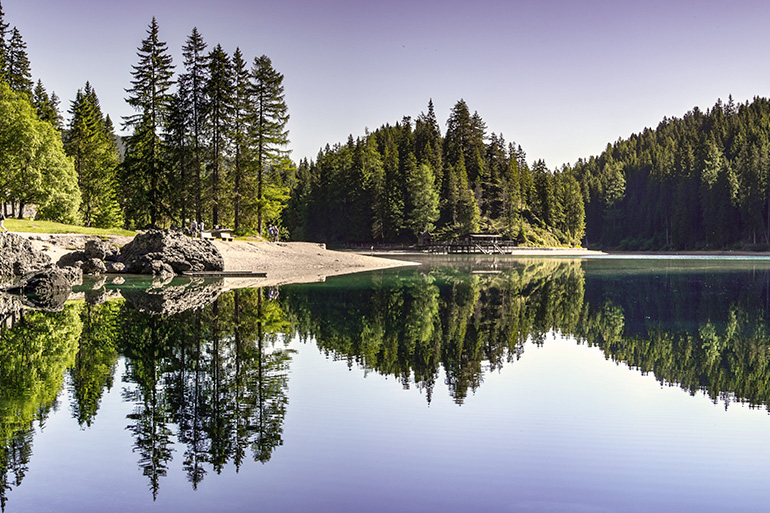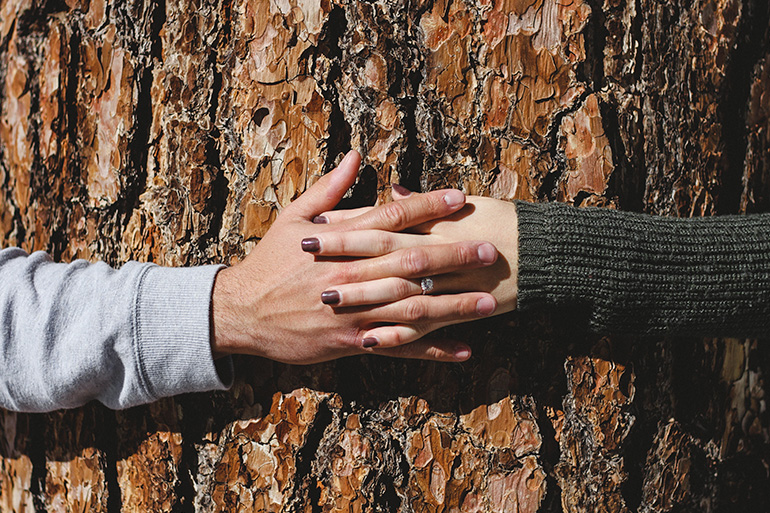February 13, 2025
March 31, 2025
Recycling in Spain is on the rise, and thankfully it has become much easier than in the past. The recycling system is more efficient and there are more and more recycling points throughout cities and towns in Spain. Worldwide, recent advances are also putting recycling on the world stage: The packaging industry has created reusable or recycled alternatives to plastic bags, and many single-use plastic products have been banned or taxed in certain countries. For example, in 2023, Spain levied a tax on non-reusable plastic packaging to discourage its use and purchase.
If you want to start recycling in Spain, or simply learn how it works, this post is for you!
We will explore recycling in Spain facts and figures, the recycling colors for the bins in Spain, rules on recycling different types of materials, and more!
Recycling in Spain Facts & Figures
- Recycling is a national and EU requirement: As part of the EU, Spain has to adhere to European Union and European Commission rules. For example, the European Commission's target is that 60% of waste should be recycled by 2030. In 2022, Spaniards recycled over 1.5 million tons of household waste, their best figure yet, but still lag behind many European nations and EU targets.
- Recycling must be sorted into different colored bins: Since 2022, all municipalities with more than 5,000 citizens must have separate collection systems for paper, metal, plastic, glass, and organic waste. This makes sense, considering that each material undergoes a different process in terms of sorting, packaging, and distribution to recycling centers.
- Recycling and waste are taxed: In Spain, the tasa de basura is the annual waste collection tax.
- Recycling reduces waste: Recycling means we reprocess materials to make new products, reducing waste that is thrown away, buried, or burned. Although difficult, it is possible to have a low or zero-waste lifestyle. You can start by buying your groceries at the local markets and taking your own reusable bags.
- Recycling protects nature: By recycling the right way, we prevent waste from ending up in nature-our beaches, waters, and mountains. We need to protect nature and the surroundings we live in. However, if we see waste in nature, we can help by cleaning it up ourselves. There are groups in Spain like BIOagradables that you can join to pick up trash.
- Recycling reduces emissions: Recycling takes up less energy, which reduces our carbon footprint and emissions. Reducing our carbon footprint helps minimize methane-release waste from landfill sites, which contributes to climate change.
- Recycling reduces the need for new materials: When we recycle materials, we reduce the need to harvest raw materials, especially those that are in short supply. This also reduces any damage to land and waters. Spanish non-profit Ecoembes has a great little comparison of what recycled parts make up the components of different items.
There are so many benefits to recycling, so you're probably eager to get started today! With this in mind, let's go over how to recycle in Spain, which means that you need to pay attention to the recycling colors of the different bins.
Recycling Colors in Spain
You don’t have to go far to recycle. Every street or neighborhood has at least five different garbage bins in five different colors. You need to know the recycling in Spain facts about the color-codes in order to put your trash in the correctly-colored recycling bin:
- Blue: The blue garbage bin is for paper and cardboard products, such as cereal boxes, newspapers, envelopes, and food wrappers.
- Green: The green bin (or green dome) is for glass bottles and jars in all shapes, colors and sizes. It's best to recycle glass jars without their lids. Also remember not to put crystal products like lightbulbs or mirrors in this bin, which must go to special collection points.
- Yellow: The yellow bin is for plastic and metal products. For plastic, deposit items such as water bottles, yogurt containers, milk cartons, caps and lids. For metal, you can do aluminium foil, tin cans, and deodorant spray cans
. - Brown: The brown bin is for organic waste, like coffee grounds, eggshells, corks, used napkins and pizza boxes with stains.
- Grey: The grey dumpster is for the rest of your waste that doesn't fit into any of the other categories, like diapers, ceramic shards and hygienic wipes.
If you get lost in the recycling color-codes, the bins often have names on them stating what they're designated for, and some feature pictures or graphics depicting the items you can throw away.
What's more, most of the garbage containers have pedals for your feet, so you don’t have to touch the dirty bins with your hands.

Recycling Different Materials in Spain
Recycling Batteries and Other Corrosive Materials
You can throw away used batteries or other corrosive materials in special bins in most supermarkets or markets. Most of the time, these small bins are situated at the main entrance. Many big cities also have mobile Eco parks, where you can leave batteries, vegetable oils and fats, mobile phones, toners and small home appliances. Most neighborhoods also have a day of the week where a truck or vehicle will come and pick up dangerous materials such as these.
Recycling Clothes and Shoes
Most neighborhoods have special containers for clothes and shoes. Or small, local initiatives come over to collect used clothes to sell or give them away to people in need. Clothing can also be donated at various religious institutions such as churches or charity organizations.
Recycling Furniture and Appliances
If you have furniture, appliances, or bigger pieces of trash, you can put it next to the containers, call the municipality, and they will come over to collect it. Sometimes it is already gone before they come to pick it up. Someone’s trash is another person’s treasure. Swapping with others or upcycling are also types of recycling in Spain.
You can help reduce waste and emissions, as well as become more energy-efficient by properly maintaining your household appliances. With home insurance, you'll insure the contents of your home and make sure that a handyman is able to come check things out in case of breakage or error. Discover Caser Home Insurance options. The same can be said for your car or motorcycle, which with proper maintenance can extend its lifetime. Discover Caser Car Insurance and Caser Moto Insurance.
Recycling in Spain Recycling has come a long way in Spain, we are hopeful that many more people will understand its importance. We hope this post has helped your understand the recycling colors and how to recycle different materials, as well as how you can reduce your impact on the environment via recycling.
Frequently Asked Questions
In Spain, recycling bins are color-coded to help separate waste for recycling. The main colors are:
-Yellow bin:For plastic packaging, cans, and Tetra Paks (drink cartons, etc.).
-Blue bin:For paper and cardboard (newspapers, boxes, magazines, etc.).
-Green bin:For glass (bottles, jars, and other glass containers).
-Gray or black bin:For general waste or non-recyclable items.
-Brown bin:For organic waste (food scraps, garden waste, etc.), in some regions.
These color codes are part of Spain’s waste management system to help residents separate recyclables from general waste.
Spain's recycling system is generally effective, and it ranks among the top European countries in terms of recycling rates. According to EU reports, Spain has steadily improved its recycling rate in recent years, with a recycling rate of around 30-40% for municipal waste. This is slightly below the EU average, but it is a significant improvement compared to a decade ago. Spain still faces challenges with improving the collection and sorting systems in some areas, but overall, its recycling system is seen as moderately effective compared to other European nations like Germany, which has one of the highest recycling rates in the world.
In Spain’s yellow bins, the following items can be recycled:
- Plastic containers (bottles, packaging, bags)
- Metal cans (aluminum and steel)
- Tetra Paks (juice or milk cartons)
- Plastic packaging (wrappers, trays, plastic bottles)
Items that cannot be recycled in the yellow bins include:
-Non-recyclable plastic (e.g., plastic bags, food packaging with mixed materials)
-Toys or plastic items that are not packaging
-Household items like plastic furniture or electrical appliances
It's essential to check for specific labels or guidance from local authorities since some packaging, like plastic films, is not accepted.
Yes, Spain has been launching several initiatives to improve recycling rates, especially with an emphasis on reducing waste and promoting a circular economy. Some recent initiatives include:
- The "Zero Waste" Campaign: Promoting waste reduction and encouraging citizens to recycle more efficiently.
- Extended Producer Responsibility (EPR): This policy requires producers to manage the end-of-life waste of their products, especially in sectors like packaging and electronics.
- Improved waste sorting: New technology is being implemented to improve the efficiency of waste sorting, including better collection systems and more advanced sorting facilities.
- Incentive programs: Some regions have introduced deposit-return schemes for bottles and containers to encourage people to return recyclable items.
Additionally, Spain is part of the EU's Circular Economy Action Plan, which aims to make recycling more efficient and reduce environmental impact.
.png?width=344&height=67&name=logo_caser%20(2).png)









Let Us Know What You Thought about this Post.
Put your Comment Below.